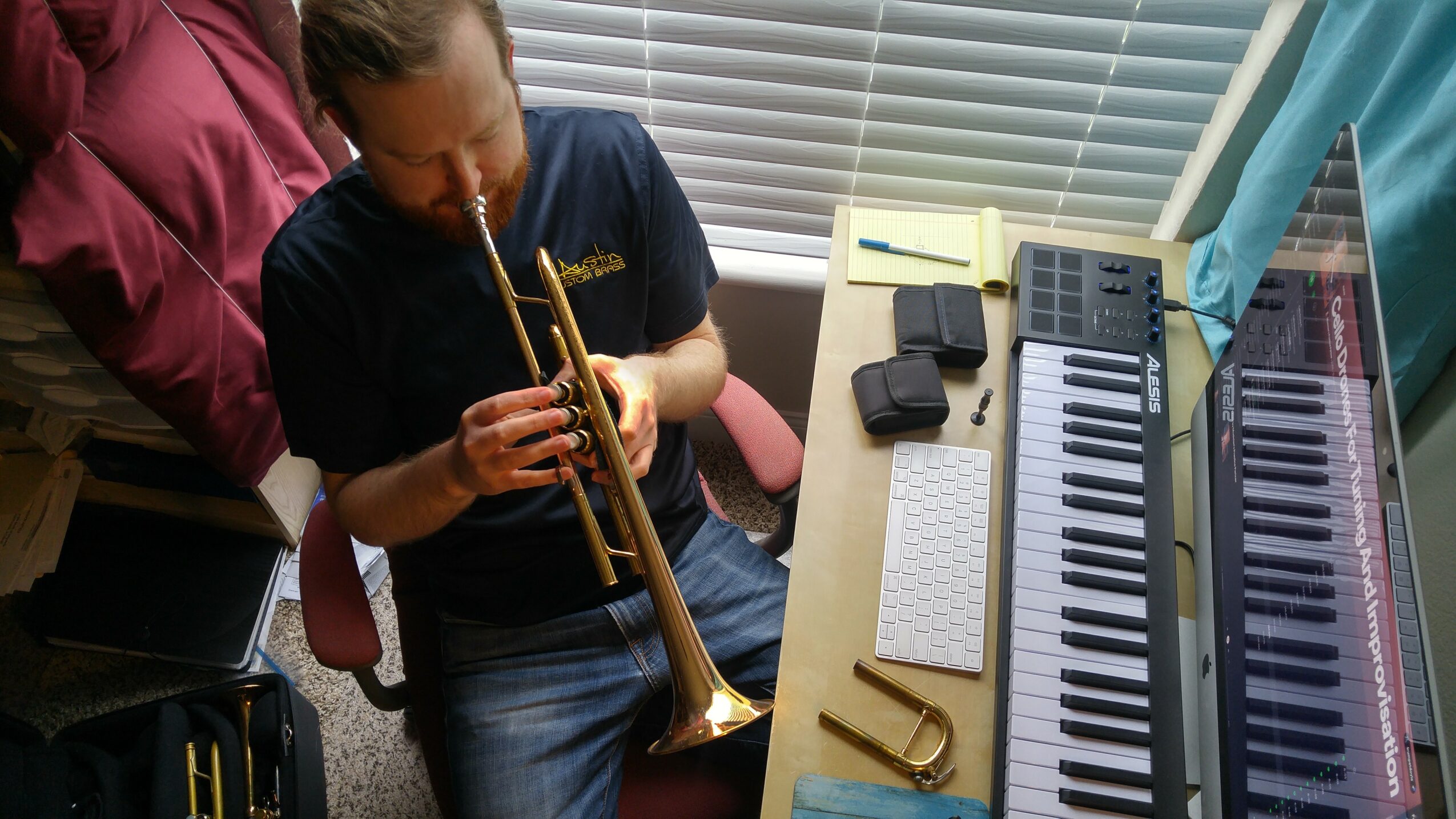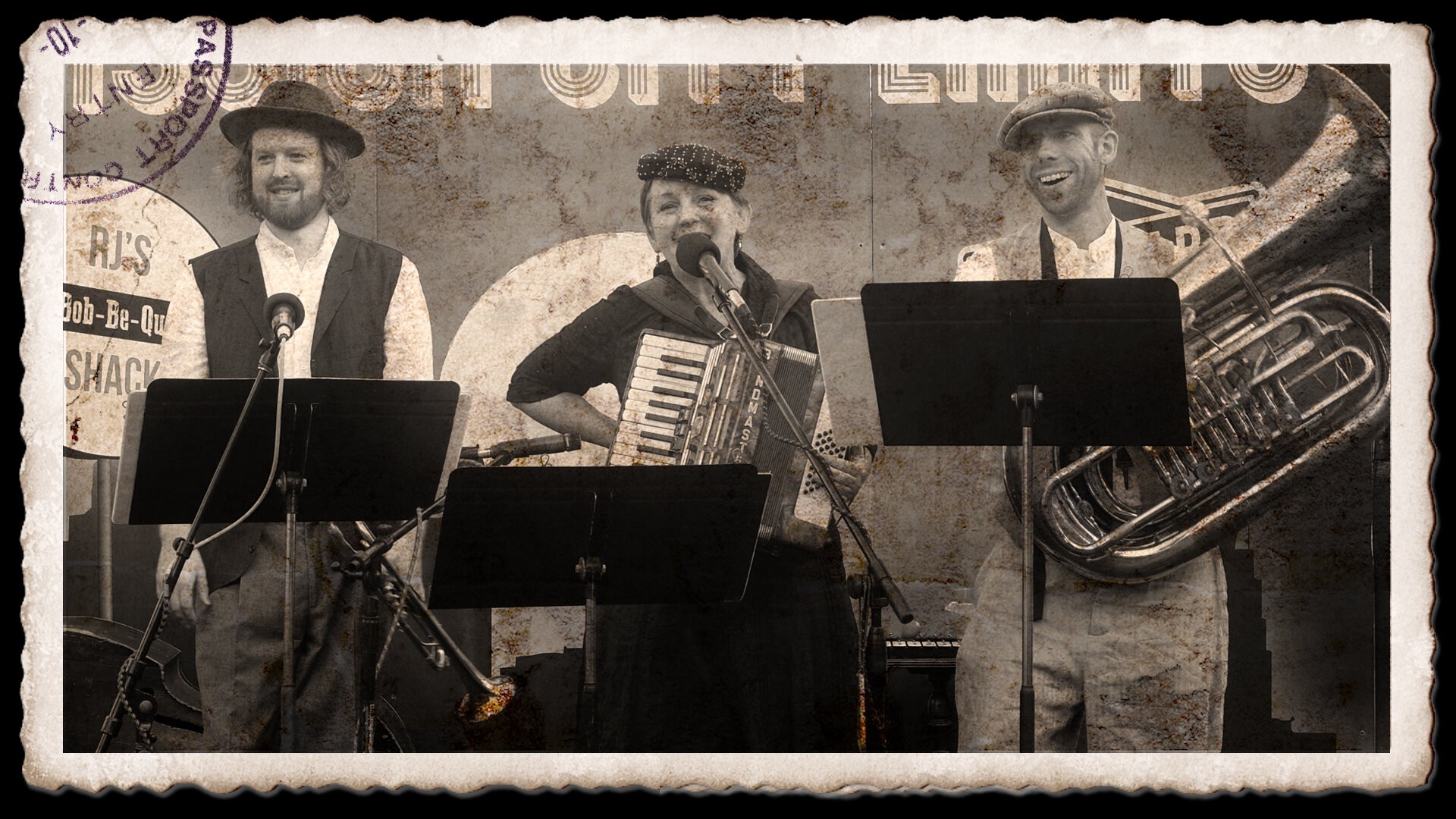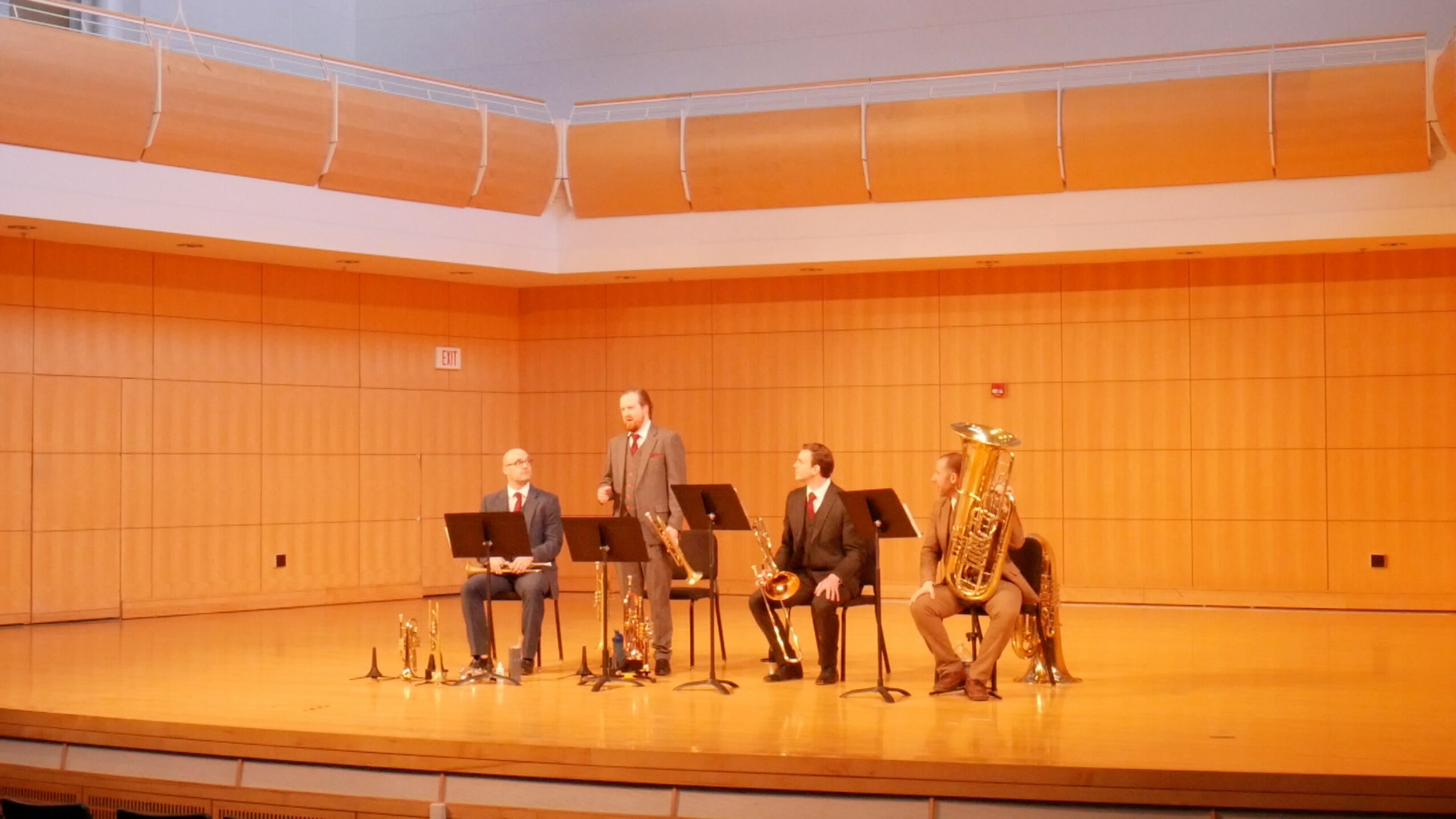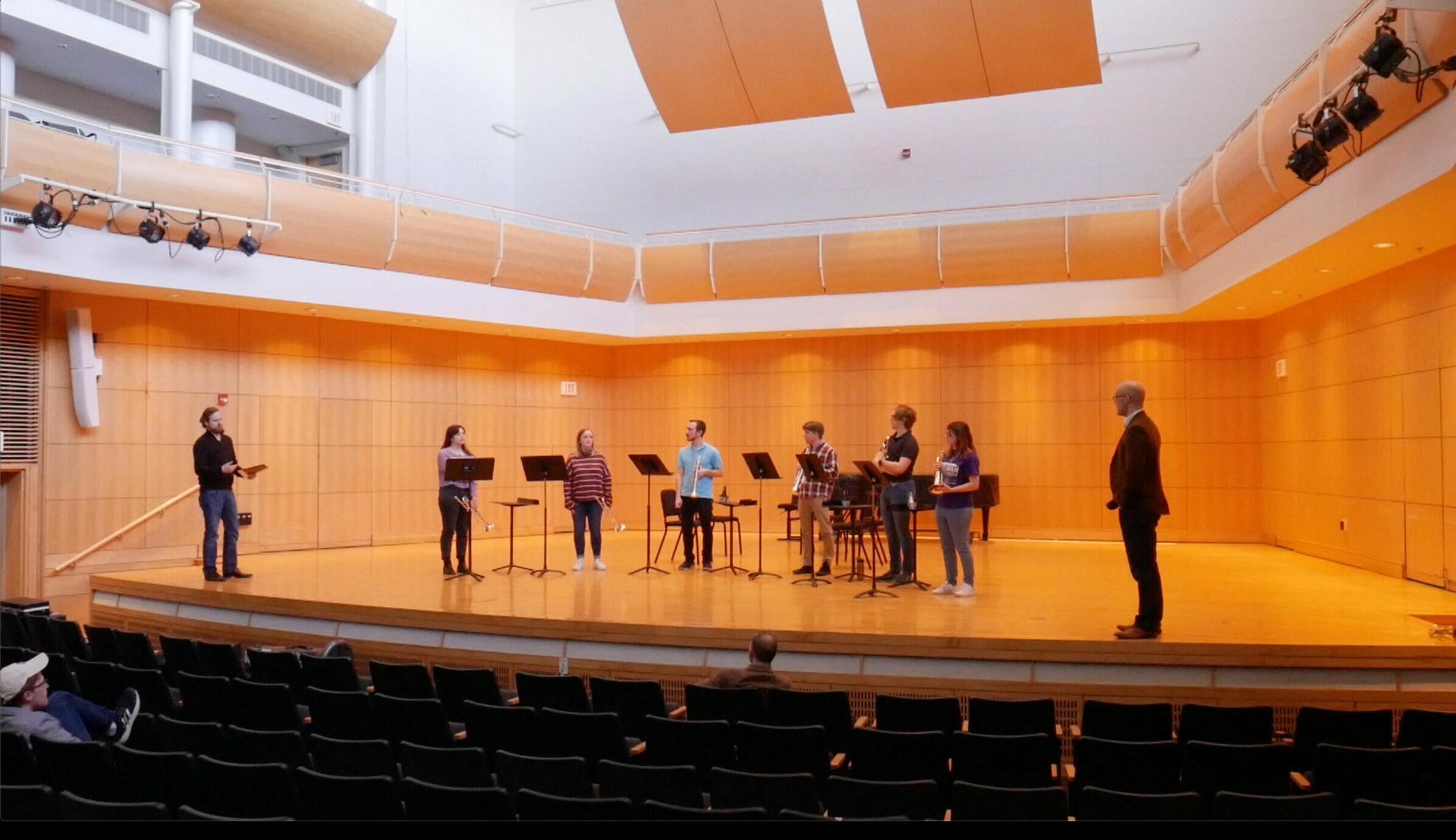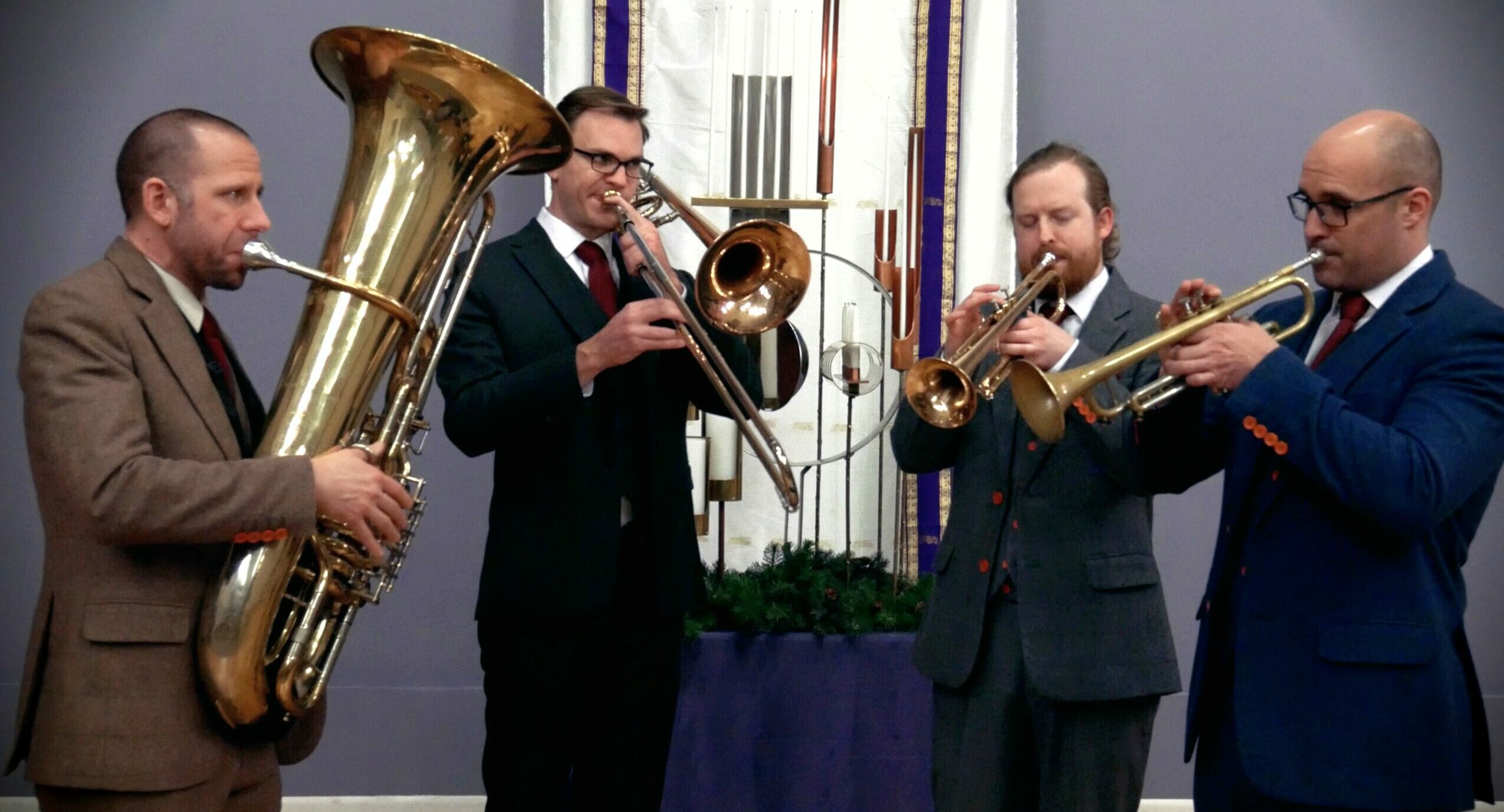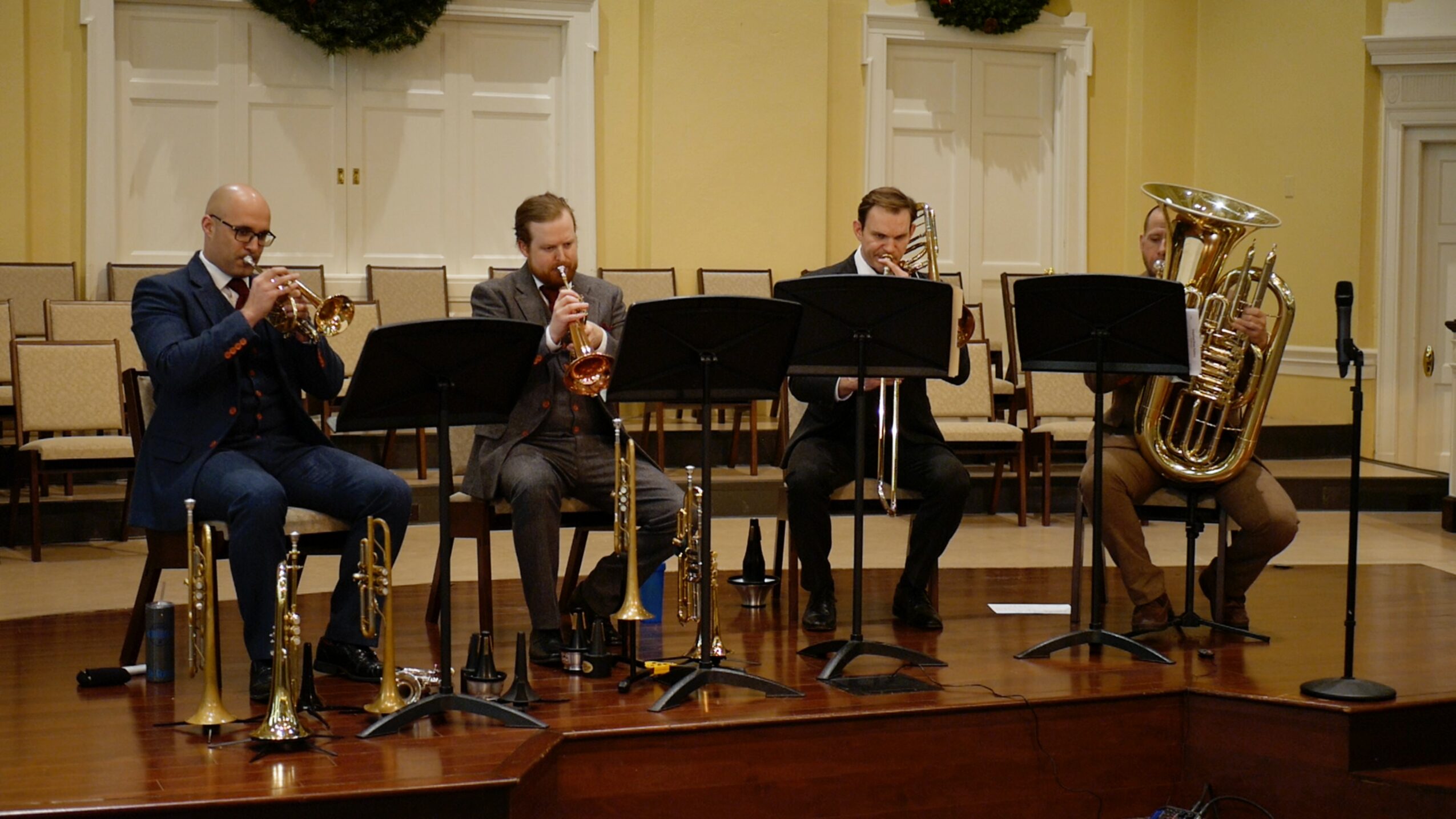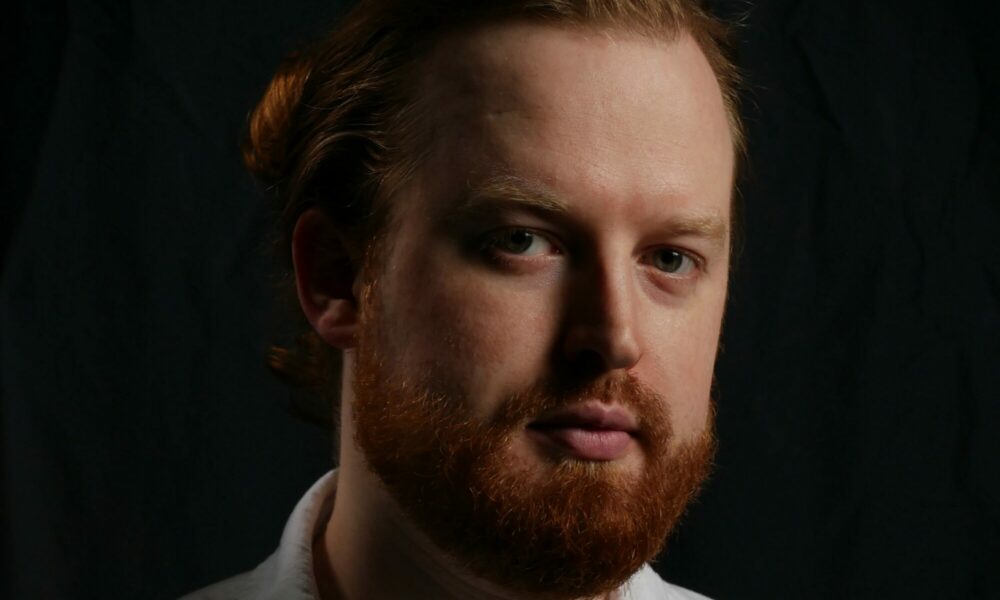

Today we’d like to introduce you to Patrick Doyle.
Hi Patrick, can you start by introducing yourself? We’d love to learn more about how you got to where you are today?
I started piano lessons in kindergarten, but by third grade, I had settled on trumpet as my primary instrument. By high school, I was sitting at or near the top of the section in regional and national honors ensembles.
I started getting into chamber music around my senior year, and my interest in quintet playing took off in college. Boston University, and the city in general, has a strong brass quintet tradition. I went to quintet camps over the summers with the Atlantic Brass Quintet and Triton Brass Quintet. Those camps were a turning point in developing my artistic identity.
When it was time to choose a master’s program, the brass quintet opportunities drew me to Oklahoma City University, where I played with the OCU Brass Quintet and the Blackwelder Brass Quintet. My teaching assistantship during my doctorate at UMKC was for private teaching and orchestral work, so some friends and I formed Ångström Brass as an independent project.
Since then, Ångström has performed live on Kansas Public Radio, been the Ensemble in Residence at Kansas City’s Cathedral of the Immaculate Conception, performed at First Fridays in the Crossroads Arts District, presented concerts for Classical Revolution KC and the Kansas City Musical Club, performed university guest artist recitals, and presented master classes at the high school and university levels.
Last weekend we were the featured artists at Truman State’s Brass Day. There’s so much more I want to do that I feel like I’m still getting started.
Alright, so let’s dig a little deeper into the story – has it been an easy path overall, and if not, what were the challenges you’ve had to overcome?
A lot of the struggles have been internal. My undergrad was a big wake-up call because the standards at the music school and in the trumpet studio, in particular, were incredibly high.
During my undergrad, I entered a bunch of competitions and auditions that I didn’t win, culminating in not advancing past the first live round at the Fischoff competition with my brass quintet. I got pretty burned out at that point. Pushing through the final requirements for my master’s and doctorate were also tough periods. I struggle with all of the final box-checking you need to do at the end of a degree program.
The biggest challenge recently was the pandemic shutdown and continuing restrictions on in-person events. Ångström Brass, and another group I’m in called the Ellis Islanders, were both gaining some good momentum going into 2020 but had to take long hiatuses. Ångström Brass was going to headline a new music educational event this spring, but it was recently canceled. Things are starting to move in the right direction again, but there’s still that uncertainty factor.
I’ve learned, and relearned, many important lessons through the struggles. You need to know yourself and play to your strengths. You need your own definition of success. Try to impress yourself, not other people. You can control your efforts, but not your outcomes. If you want something, keep chipping away at it. Failure is sometimes a point of view more than an objective reality.
Alright, so let’s switch gears a bit and talk business. What should we know about your work?
I’ve specialized in chamber music for a long time. I try to carry the chamber music mindset and approach into all of my work. There’s a style of preparation, collaboration, and contextual awareness that characterizes great chamber musicians, and I hope to one day be considered a great chamber musician.
Ångström Brass is currently my main project. We’re working hard on expanding our repertoire through commissions, writing, and arranging more music for the group. We recently sent out a “call for scores” to solicit new works and collaborations, and we already have plans to work with a couple of new composers. We’re booking concerts and educational work for our 2022-23 season, including our first tour. We’re laying the groundwork for our first major recording project, which will make this season’s new music more widely available.
I also play in the Ellis Islanders, a trio that plays the music European immigrants brought to this country and the music they found on arrival. Our repertoire comes from the folk and cabaret traditions of France, Germany, Italy, Russia, America, and more, sung both in English and in the original languages. We play our own arrangements of this music, tailored to our instrumentation of accordion, tuba, trumpet, and voice.
In addition to those groups, I play freelance gigs around town and do a little private teaching. I’ve gone on a couple of tours through the South and Midwest with Bruce Vantine’s Cornerstone Chorale and Brass. Before the pandemic, I played a couple of shows for Music Theater Heritage at Crown Center, including “Cats”, which was the first time my then-girlfriend—now-wife—heard me perform.
I play for a lot of weddings at the Cathedral of the Immaculate Conception, where I also contract the brass quartets for Christmas, Easter, and other special events.
So maybe we end on discussing what matters most to you and why?
Well professionally, I’m trying to build a career that honors the training I’ve received from my teachers and mentors, gives me the opportunity to do what I love every day, and lets me help pass along this art form to the next generation of musicians.
I think it’s important to always be learning from experience, and the best way to gain experience is through working hard, experimenting, and taking smart risks. Chamber music and brand building are well aligned to that philosophy. The well-worn paths to success in the classical music world run through institutional work in orchestras, military bands, and academia. The problem is that there aren’t a lot of pre-existing jobs, and there are many more qualified applicants than there are openings. Taking auditions is expensive, both in terms of travel costs and prep time.
My focus on chamber music and building brands come with its own set of risks. There are more potential paths to success than there are on the audition circuit, but there are also more ways to fail. The trade-off is nearly complete freedom for experimentation. For me, I think the failures in the brand building have been better teachers of success than the failures in auditioning for jobs.
There’s no such thing as a risk-free life, so I try to make decisions where I can live with both the negative and positive potential outcomes. I think it’s important to have that kind of skin in the game, especially when it comes to teaching students what it means to forge a path in the music world.
Contact Info:
- Email: [email protected]
- Website: www.trumpetdoyle.com
- Instagram: https://www.instagram.com/trumpetdoyle/
- Youtube: https://www.youtube.com/channel/UCErJ8qsUZM7rGxtvOIWVG6A
- Other: https://www.angstrombrass.com/
